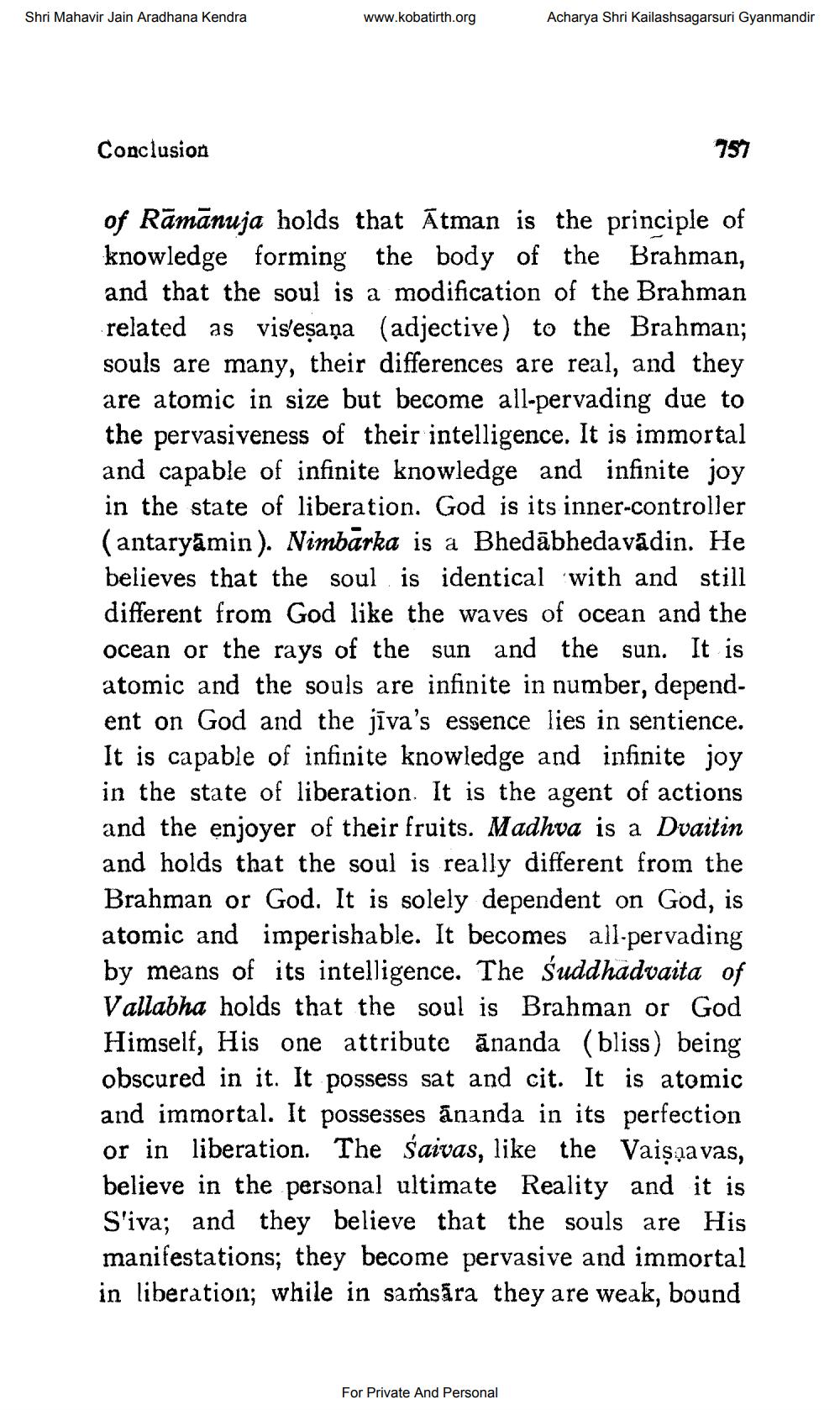________________
Shri Mahavir Jain Aradhana Kendra
www.kobatirth.org
Acharya Shri Kailashsagarsuri Gyanmandir
Conclusion
757
of Rāmānuja holds that Ātman is the principle of knowledge forming the body of the Brahman, and that the soul is a modification of the Brahman related as vis/esaņa (adjective) to the Brahman; souls are many, their differences are real, and they are atomic in size but become all-pervading due to the pervasiveness of their intelligence. It is immortal and capable of infinite knowledge and infinite joy in the state of liberation. God is its inner-controller (antaryāmin). Nimbārka is a Bhedābhedavādin. He believes that the soul is identical with and still different from God like the waves of ocean and the ocean or the rays of the sun and the sun. It is atomic and the souls are infinite in number, dependent on God and the jīva's essence lies in sentience. It is capable of infinite knowledge and infinite joy in the state of liberation. It is the agent of actions and the enjoyer of their fruits. Madhva is a Dvaitin and holds that the soul is really different from the Brahman or God. It is solely dependent on God, is atomic and imperishable. It becomes all-pervading by means of its intelligence. The suddhadvaita of Vallabha holds that the soul is Brahman or God Himself, His one attribute ānanda (bliss) being obscured in it. It possess sat and cit. It is atomic and immortal. It possesses ananda in its perfection or in liberation. The Saivas, like the Vaisaa vas, believe in the personal ultimate Reality and it is S'iva; and they believe that the souls are His manifestations; they become pervasive and immortal in liberation; while in samsára they are weak, bound
For Private And Personal




